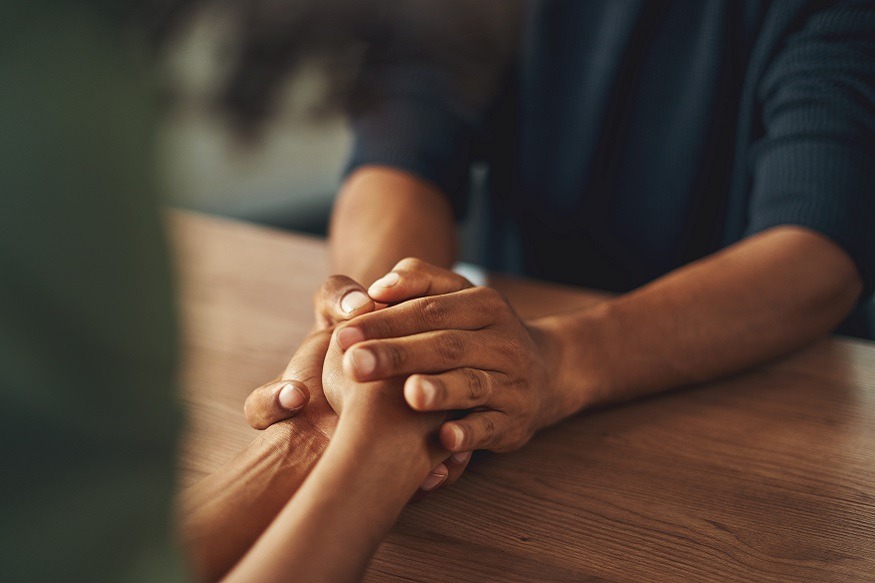
Couples therapy: what is it and can it save my relationship?

If your relationship has not been great for a while, but you still want to put effort into making the best of it, for example because you have children together or because you want to find out if you still have a future together, then you could consider the option of couples therapy. What can you expect from a couples therapist? How do you find the right therapist? Does therapy really help? I’ll tell you all you need to know in this blog post.
What is couples therapy?
Couples therapy – also called relationship therapy or marriage counselling – is a form of therapy to improve the relationship between two or more people. If one partner had an affair or is in love with someone else, couples therapy can be helpful. If you have sexual problems, therapy can help as well. These are the most common reasons to visit a couples therapist:
- Communication problems
- Having an affair or being in love with someone else
- Regular heated arguments
- Not feeling connected to each other anymore
- Other (or changing) needs
What can you expect from couples therapy?
According to Marcelino Lopez, psychologist, relationship therapist, and matchmaker for Married At First Sight, couples therapy is all about understanding your partner better. There are four important questions your couples therapist will ask during the therapy sessions:
What do you expect from each other?
What do you want from your partner and what does your partner want from you?
Can and will you meet those expectations?
Usually couples cannot meet their partner’s expectations and desires. This is normal and nobody can force you to do so. You can negotiate about the most important points.
What reasons are there to not meet those expectations?
Is it physically or mentally impossible? Does it go against your will? It it possible to overcome this?
Which steps are necessary to be happy together?
Which steps will you take to change or to change your relationship?
Does couples therapy help?
Whether or not relationship therapy helps depends on the person and couple. It’s important to realise you can only be happy in a relationship if you’re also happy with yourself. If you’re a couple it’s not your task to make each other happy: a relationship does not complete, but complement your life.
Relationship therapy can definitely help couples reconnect. You don’t have to see therapy as a last resort. If you consider couples therapy to be a way to maintain the relationship, your view is much more positive. A therapist can help make clear what the problem is both partners face. Therapy is meant to help you communicate with your partner openly and honestly in a positive way. Your therapist can also help you find solutions or adjustments. On average, succesful couples therapy takes about ten sessions.
You have to do it yourself
In the end, it’s important to realise that you will have to do it yourself. You (and your partner) have to be open to taking certain steps. This can vary from accepting your partner’s quircks to changing the things your partner doesn’t like about you. It can also be very painful: what if one of you is in love with someone else? You will have to talk about it or hear your partner talk about it in order to overcome the problem.
Different kinds of couples therapy
There are many different kinds of couples therapy nowadays. There is the traditional version, where you and your partner see a therapist together. But that isn’t the only possibility anymore. You can also get online therapy. Or what about a relationship therapy weekend? This can be great if you work a lot or your work schedule is irregular. These are the most common types of couples therapy:
Classic couples therapy
You and your partner regularly visit a therapist together and you talk about your problems. The therapist creates a therapy plan based on your needs as a couple. This therapy is on an individual level. For example, if you mainly feel the need to discuss the problems in your relationship during therapy sessions, then that is what you will do. The therapist can also give your homework assignments if you think it’s helpful.
Online therapy
These therapy sessions take place online through Skype or Zoom. This is great for people who lead very busy lives and don’t have time to go see their therapist in person every week. Or when a worldwide pandemic shuts down life as we know it of course.
Family therapy
This type of therapy doesn’t just focus on your relationship with your partner, but also on the rest of your family. Family therapy is a good choice if there a are no problems in your relationship, but you have a child that causes problems.
IBCT couples therapy
IBCT stands for Integrative Behavioral Couple Therapy. This type of therapy mainly consists of exercises and homework assignments. The main focus is on emotional acceptance and tolerance, and it’s based on the idea that you can’t solve every problem. This type of therapy is a succes for three out of four people.
EFT couples therapy
This type of couples therapy is very suitable if you and your partner fight a lot. EFT stands for Emotionally Focused Therapy. During the therapy sessions, you will learn to understand your emotions and fears, as well as those of your partner. The goal is to be available to each other again and to stop negative interactions. If you don’t feel connected to your partner anymore, then it can lead to fear and misunderstanding. EFT is scientifically proven and very succesful. The chance of relapse is very small.
Where do I find a good therapist?
You can search online for a suitable therapist in your neighbourhood. On some websites, you can even read reviews posted by clients. Keep in mind that it’s important to feel a connection to your therapist. You can’t judge someone based on (anonymous) reviews.
The costs of couples therapy
Relationship counselling isn’t usually available on the NHS, unless the relationship problems involve serious issues like depression or other mental problems. There are many therapists to choose from in every region. The costs for therapy vary greatly, mostly from £70 to £150 per session.








Respond or ask a question
0 comments